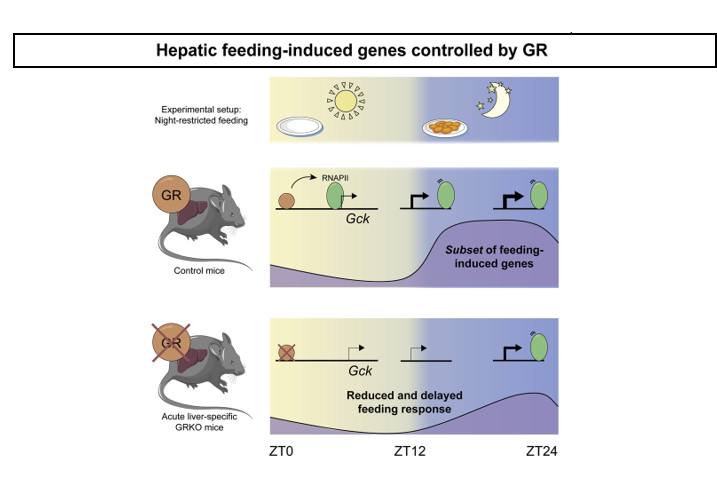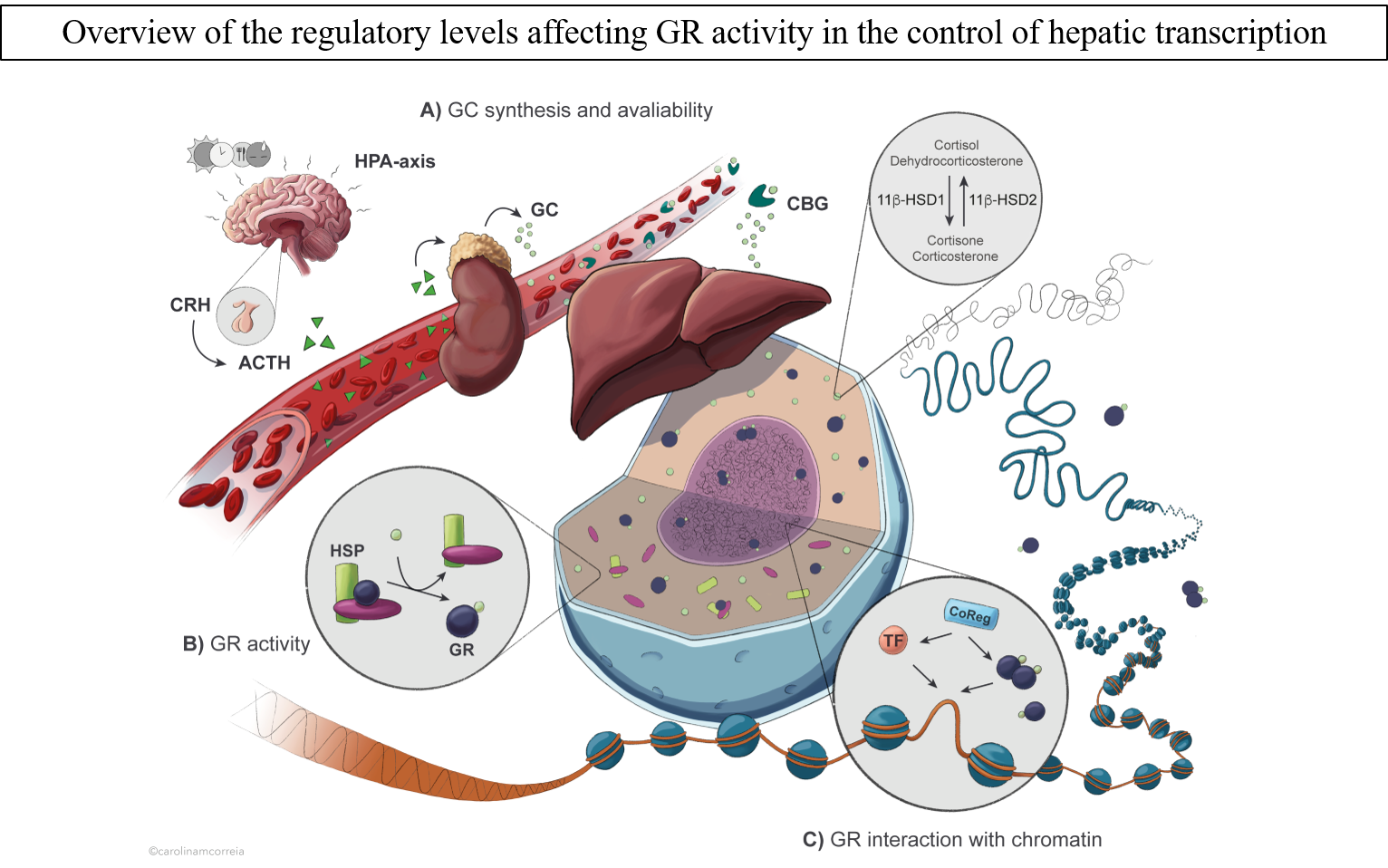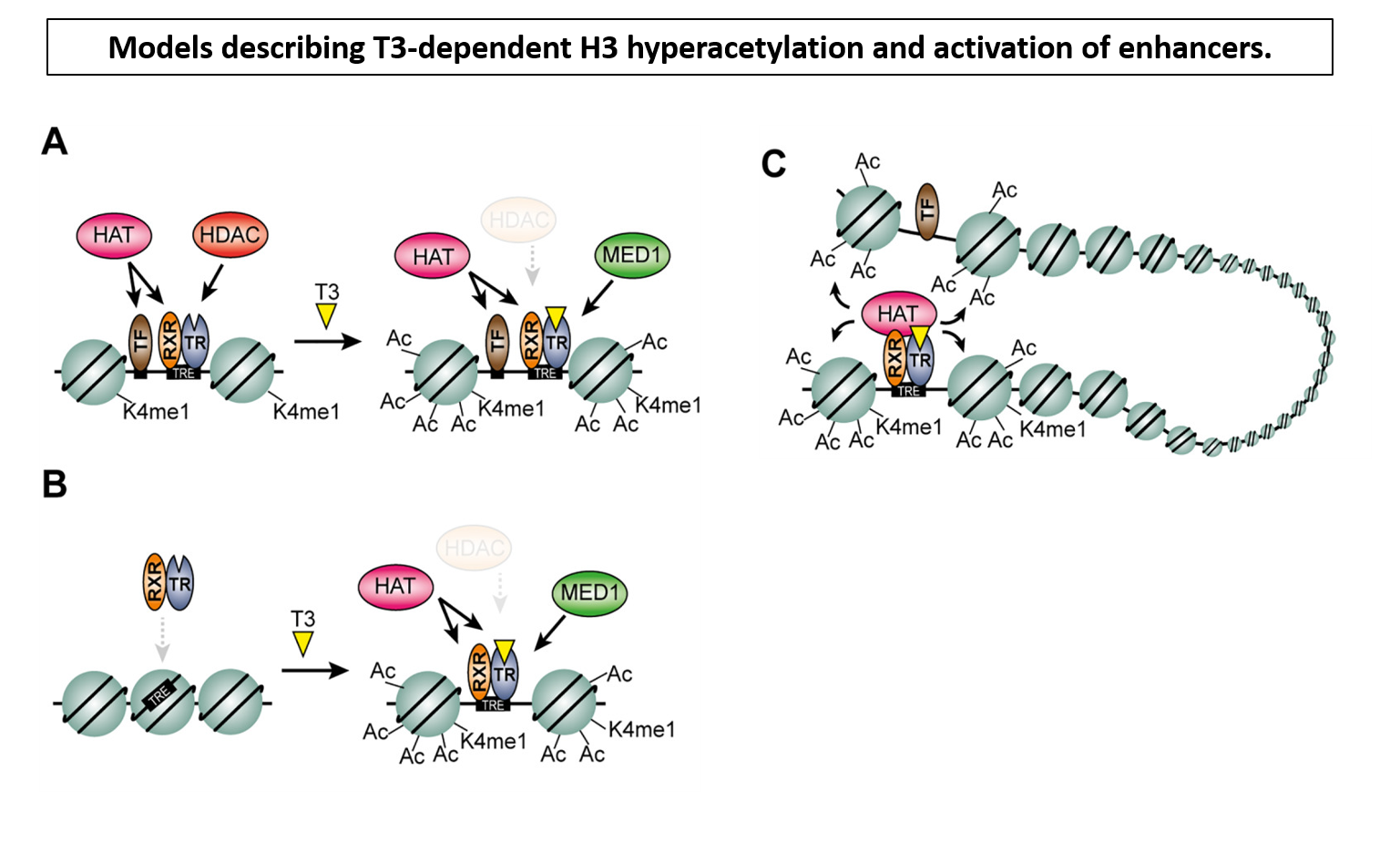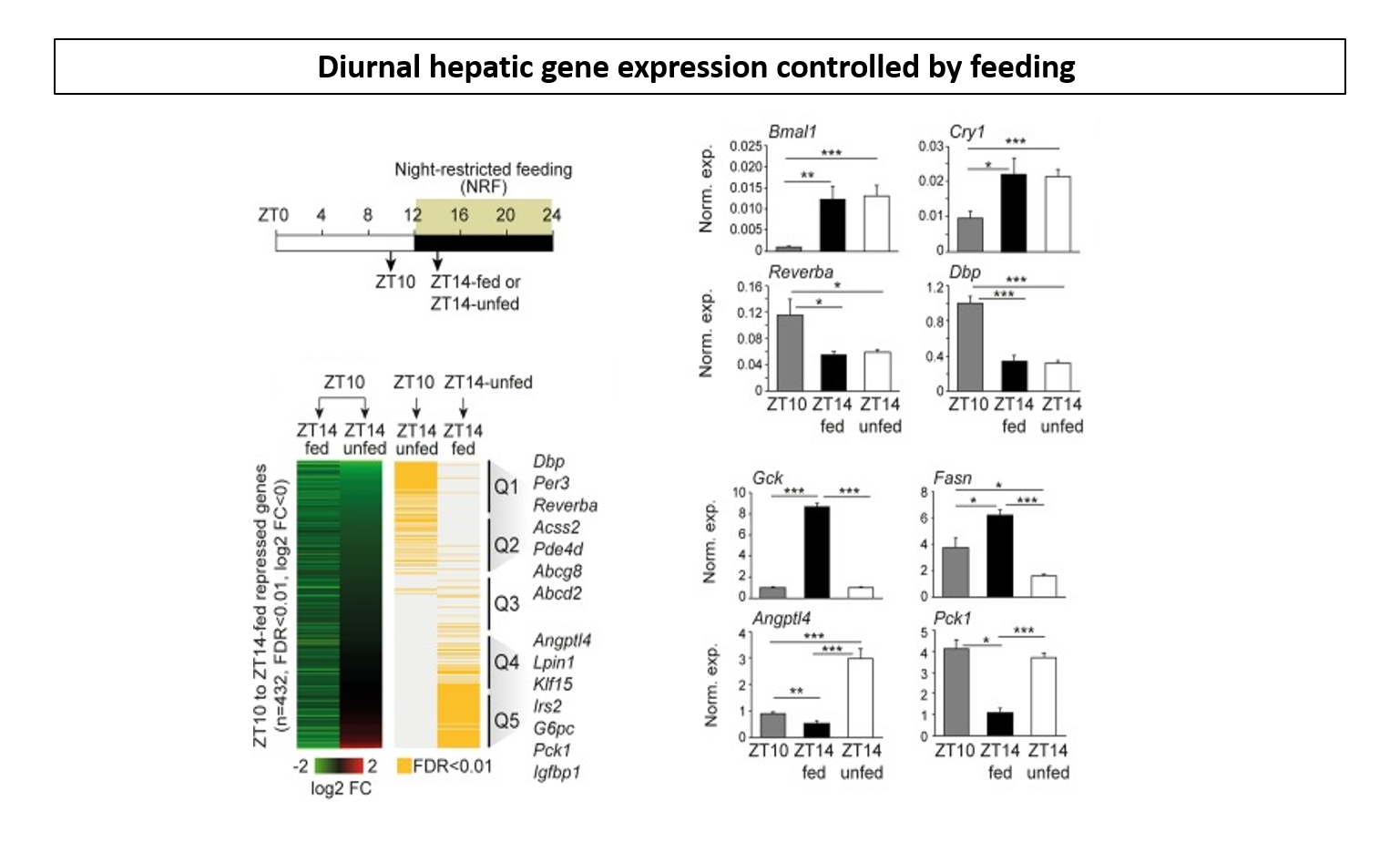Publication HIGHLIGTS
-
![]()
Selected publication 3
Multifaced control of GR signaling and its impact on Hepatic Transcriptional Networks and Metabolism
Epigenetic factors have been suggested to play an important role in metabolic memory by trapping and maintaining initial metabolic changes within the transcriptional regulatory machinery. In this study we fed mice a high fat diet (HFD) for seven weeks followed by additional five weeks of chow, to identify HFD-mediated changes to the hepatic transcriptional program that may persist after weight loss. The data presented in this paper demonstrates that the transcription regulatory landscape in the liver induced by HFD is highly dynamic and can be reversed by weight loss. This provides hope for efficient treatment of early obesity-associated changes to hepatic complications by simple weight loss intervention without persistent reprograming of the liver transcriptome.
-
![]()
Selected publication 2
Multiple mechanisms regulate H3 acetylation of enhancers in response to thyroid hormone.
We have used a genomics approach to study enhancer hyperacetylation by the thyroid hormone receptor (TR), described to operate as a bimodal switch. In summary, we demonstrate various mechanisms controlling hormone-dependent transcription thereby adding significant details to the otherwise simple bimodal switch model.
-
![]()
Selected publication 4
Impaired glucocorticoid receptor expression in liver disrupts feeding-induced gene expression, glucose uptake, and glycogen storage
The transition from a fasted to a fed state is associated with extensive transcriptional remodeling in hepatocytes facilitated by hormonal- and nutritional-regulated transcription factors. Here, we use a liver-specific glucocorticoid receptor (GR) knockout (L-GRKO) model to investigate the temporal hepatic expression of GR target genes in response to feeding. Interestingly, in addition to the well-described fasting-regulated genes, we identify a subset of hepatic feeding-induced genes that requires GR for full expression. This includes Gck, which is important for hepatic glucose uptake, utilization, and storage. We show that insulin and glucocorticoids cooperatively regulate hepatic Gck expression in a direct GR-dependent manner by a 4.6 kb upstream GR binding site operating as a Gck enhancer. L-GRKO blunts preprandial and early postprandial Gck expression, which ultimately affects early postprandial hepatic glucose uptake, phosphorylation, and glycogen storage. Thus, GR is positively involved in feeding-induced gene expression and important for postprandial glucose metabolism in the liver.



